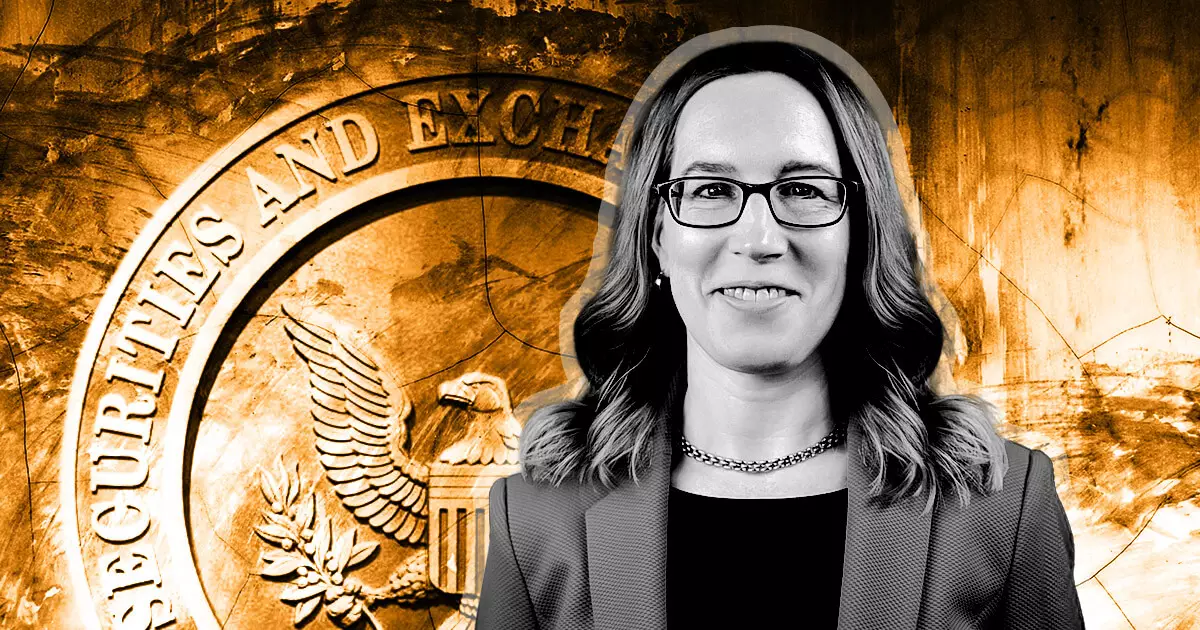The United States Securities and Exchange Commission’s (SEC) Commissioner Hester Peirce recently raised valid concerns about the regulator’s approach towards promoting transparency within the cryptocurrency industry. Her skepticism emerged in response to a statement made by the SEC chief accountant, Paul Munter, who cautioned accounting firms engaged in auditing duties for crypto firms about the potential ramifications of misrepresenting their findings. While Peirce acknowledged the importance of a clear proof of reserve for crypto firms, she insisted that the regulator should encourage, rather than discourage, their good-faith efforts to enhance transparency in this emerging field.
In his statement, Munter warned that accounting firms could face censure or suspension if their clients made “material misstatements” regarding the extent of the audit performed. Moreover, these firms might also fall under the purview of the antifraud provisions of the federal securities laws. While it is crucial to hold accounting firms accountable for accurately portraying the results of their audits, Peirce emphasized that the SEC should not impede genuine attempts to usher in more transparency to the crypto scene.
Munter further opined that accounting firms often engage in non-audit work, which clients may erroneously perceive to be on par with or more precise than a financial statement audit. However, he stressed that these alternative arrangements lack the rigorous and comprehensive nature of a financial statement audit and may not offer reasonable assurance to investors. In cases where an accounting firm becomes aware of a client’s misleading statements regarding the nature of their non-audit work, Munter recommended the firm to consider taking action, including ceasing association with the client and informing the Commission if necessary.
Preserving Independence for a Robust Financial Reporting System
To enhance the integrity of the financial reporting system, Munter advised accounting firms to maintain independence in their work. By upholding their independence, they can ensure an objective and impartial assessment of their clients’ financial statements. This emphasis on independence is crucial, especially considering the recent collapse of FTX and the subsequent criticism faced by several auditors, such as Mazars and Armanino. These auditors faced scrutiny regarding the efficacy of their reports, prompting them to sever ties with their crypto clients.
In light of FTX’s collapse, various crypto firms promptly introduced a proof-of-reserve scheme to provide evidence of their cryptocurrency holdings. However, this system attracted considerable criticism due to doubts surrounding the accuracy and reliability of the auditors’ reports. The withdrawal of auditors, including Mazars and Armanino, from their crypto clients exacerbated the controversies surrounding these non-audit arrangements.
A Call for Balanced Regulation
Commissioner Peirce’s evaluation of the SEC’s approach highlights the need for a balanced and constructive regulatory environment for the cryptocurrency industry. While accountability and accuracy should remain paramount, it is essential not to deter genuine efforts to enhance transparency. Striking the right balance between regulation and innovation will empower the industry to thrive while safeguarding the interests of investors.
The SEC’s position on promoting transparency within the cryptocurrency industry requires further scrutiny. Commissioner Peirce’s reservations, echoed by Munter’s warnings to accounting firms, shed light on the intricacies and challenges of auditing cryptocurrencies. The path forward necessitates a collaborative and adaptable approach that fosters trust, accountability, and robustness in financial reporting.


Leave a Reply